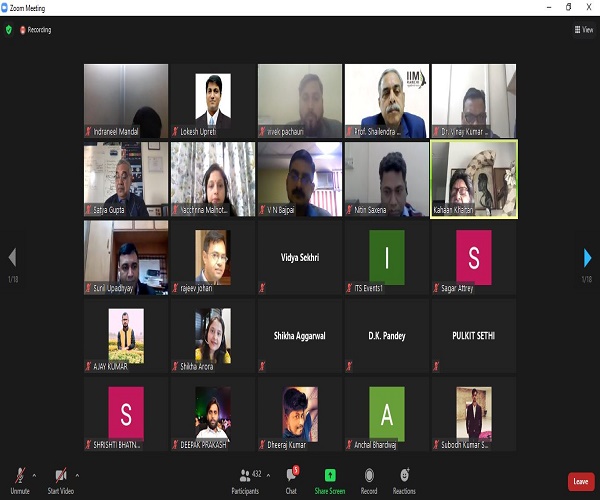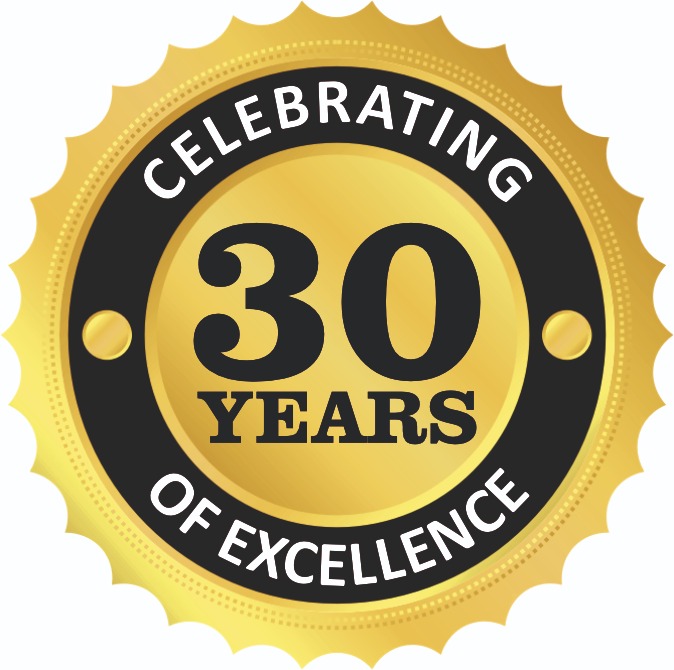Latest Updates
The Research Convention 2020 with the theme “Aatma Nirbhar Bharat: Living in the Age of Innovation” was organised by ITS Mohan Nagar Ghaziabad on the 26th December, 2020.


The inaugural session of the convention was graced by luminaries like Mr Satya Gupta, Chairman – India, IPV6 Council, who joined as the Chief Guest; Mr Anil Khaitan, Chairman, Sunil Health Ltd., and Former Chairman, PHDCCI; and Prof. (Dr.) Shailendra Singh, Director, IIM Ranchi. The latter two were participating in the capacity of Guests of Honour.
The session was opened by Director (Management) Prof. (Dr) Vidya Sekhri, who began by saying that during a time of global crisis, it is very significant that our country is emerging as Aatma Nirbhar Bharat. Referring to the fluctuating environment where economies have to encounter a variety of ups and downs, Dr Sekhri quoted Gautam Buddha, noting that becoming comfortable with impermanence is the true sign of an evolved individual. She explained that now more than ever before it was necessary that India takes the lead in the fight against Covid-19 by developing effective vaccines.
Next Dr Rajeev Johari, Convener of the Convention, provided an outline of the event. He pointed out that terms like Atma Nirbhar Bharat and Five Trillion Dollar economy had become commonplace even before the unfortunate onset of the pandemic. While the spread of Covid has definitely put the brakes on these and other initiatives for now, it is only a matter of time before efforts are resumed with new zest and vigour. Therefore it is essential to lay down the route map for the path ahead; that is one of the aims for this convention. Dr Johari went on to provide a snapshot of the participants and deliberations coming up in the rest of the day’s programme.
Mr Khaitan was the first to speak among the guests. He chose to concentrate on the area of healthcare technology. Quoting the examples of typewriters and mobiles, Mr Khaitan highlighted how lack of innovation can spell the death knell for products as well as businesses. He referred to cutting edge concepts like the use of artificial intelligence; blockchains as a means of data verification; advanced social media; voice search as a means of responding to those needing care; artificial assistants like Siri, Cortana and Google Assistant; uses of virtual reality; mobile applications; and video marketing as a tool for reaching out to the customer.
Among the other speakers, Dr Singh spoke about how myriad innovations are helping to deal with newer challenges by a constantly evolving pandemic. The chief guest, Mr Satya Prakash focused on the modalities for innovation in India at the policy level. He drew attention to how digital infrastructure, which is the need of the hour, brings a whole new ball game compared to the traditional physical version. He illustrated his thoughts through his involvement in the efforts at setting up a digital backbone for the country. Coming to the necessity of creative innovation, he distinguished it as something which avoided the disruptive effect. In this connection he also threw some light on the Blue Ocean strategy used in the corporate world.
The main programme of the day consisted of two panel discussions. The first one was chaired by Dr Sudhir Kochhar, Former ADG (IPR) and National Coordinator (NAIP), ICAR and focussed on sectors like agriculture, defence and manufacturing. The other discussants in this session included Mr Durgesh Sharma DG, Fibre Cement Products; Maj. Gen. Ravi Arora, CEO and Chief Editor, Indian Military Review; and Dr Nishikant Ojha, Advisor, Cyber, Aerospace and Counter Terrorism and eminent faculty, Defence and Paramilitary Forces.
After the Director (Management) welcomed the participants in the first panel discussion, Dr Kochar kicked off the session as the Session Chair by drawing on his long experience of work in the field of agriculture. Starting with the fact that agriculture is the bedrock of any economy, he described the major potential for startups in this area. On the one hand there was scope for individual R&D initiatives; on the other it was also possible to go in for public-private initiatives. Certain technologies were at the Proof of Concept stage, which need further scaling up. He also referred to his experiences as National Coordinator for agricultural projects involving 400 partner institutions.
The next speaker in the discussion was Dr Ojha, who brought his experience in counter terrorism along with significant diplomatic capabilities into play. He repeatedly stressed that India could not afford to depend only on foreign acquisitions alone for its military requirements at a time when there were significant security challenges in the neighbourhood. He also emphasised on the need to develop our own R&D capabilities. Continuing on the theme of India’s defensive expertise, Maj. Gen. Ravi Arora provided a detailed breakdown of different case stories from Indian military experience.
Mr Sharma brought the discussion back to the fold of agriculture with detailed statistical information laying down the markers for the immediate future in this field. He also threw some light on the government and its role in public sector units. The session concluded with Dr Sekhri commending the participants for the in depth knowledge in their respective areas while presenting them individual mementos.
The post-lunch session had Mr Vishal Gandhi, Founder and CEO of BIORx Venture Advisors Pvt. Ltd. taking over as the Chair with the attention shifting towards banking and technology. Mr Gandhi was joined by Mr Chanchal K. Gautam, AGM-NABARD, DDM Office, Ghaziabad; Mr Rajiv Ratna Shah, Director, MIDAS Lab, IIIT Delhi; Ms. Bhumika Sukhadia, Co-Founder, OPE Innovation Lab, Mumbai; and Mr Niteen Khemka, Co-Founder and CEO, Startup Spine, and mentor at NASSCOM and NITI Aayog.
Prof (Dr) Vidya Sekhri welcomed all the panelists with her thoughts on the future of technology. Mr. Gandhi then shared his view on a variety issues like Covid-19, disruptive challenges, and the opportunities afforded therein. He also spoke about the growth of pharmaceutical industry during the COVID-19 era with the production of Indian vaccines, PPE equipment, sanitisation efforts, need for thermal scanning and repurposing of drugs.
Mr Gautam next emphasised on the need for banking infrastructure with the five pillars of demand, demography, technology, and infrastructure & economy. These were explained through copious data, graphs and charts. Dr. Shah started by sharing a case study on “Suicidal Ideation Detection”. He also added some Research Work on “AI for social Good” empowering towards banking, policing, Bloomberg, Delhi Jal board and many more. He also elaborated about Information Retrieval System, Visual Speech Recognition, password prediction & cybercrimes.
One of the highlights of this discussion was the talk by Ms. Sukhadia, who shared her views on why businesses should “know their local”. She mentioned the significant role of design and innovation in the businesses, using an excellent example on the doodhwalas changing to milk delivery in glass bottles and then to plastic packets. She also talked about the 4 Ds, viz. - Discover, Define, Design, & Deliver. The session was completed by Mr Khemka, who elaborated on the role of MSMEs, government subsidies, tax exemptions, loans facility and incubation with regard to entrepreneurial activities.
Prof. (Dr.) Vidya Sekhri then enlightened the audience with her words of wisdom as she presented the virtual plaques as a token of gratitude and remembrance to all the panelists. Finally the Vote of Thanks was delivered by Dr.Indraneel Mandal as the day’s programme drew to a close. The diverse topics and animated discussions enthralled the students in particular and the audience in general as the Convention concluded fruitfully with much food for thought.

